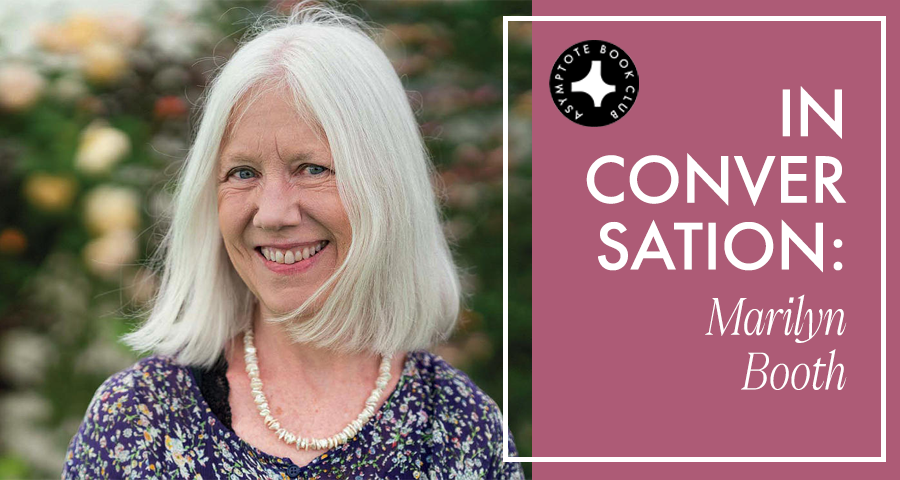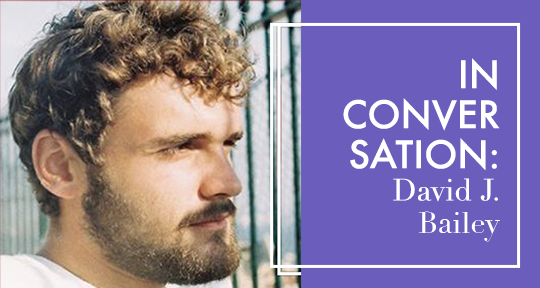Did you enjoy Rachel Farmer’s translation of francophone Swiss writer Catherine Safonoff in our most recent issue? If so, you’d be excited to learn that we are bringing you another of Farmer’s work in this week’s Translation Tuesdays showcase. Dagmar Schifferli, a writer who is also trained in psychology and social pedagogy, maps the shape-shifting and exacting interiority of an adolescent protagonist who speaks to her psychiatrist. In between fiction and dramatic monologue, here is a narrator’s voice that is unforgettable in her ability to speak plainly and potently.
“Translating Dagmar Schifferli’s enigmatic novella Meinetwegen certainly came with its own set of challenges. For starters, how should I choose just a short extract of a work whose unique genius comes from the way it gradually, insidiously makes you question its narrator, then fall for her, then question her all over again? The novella, set in the early 1970s, consists entirely of a series of one-sided conversations between the 17-year-old protagonist and her psychiatrist. At several points, the young girl hints at her own untrustworthiness, insisting she would not tell a “deliberate lie”, challenging her psychiatrist to decide whether or not to believe her, and alluding to a lack of free will. The duplicity of her narration is reflected in the language, where dual meanings abound: for example, a clock “strikes” and another is “beating time”, a reference to the beatings she allegedly received.
Even the German title, Meinetwegen, has a double meaning (and translating it was a bit of a head-scratcher). On the one hand, it can mean something like “I don’t care”—an attitude expressed about the narrator’s actions by an adult in her life. But later, another meaning is unveiled. The protagonist realises she can do things meinetwegen: “on my own account”, “for my own benefit”, “for my sake”. Finally, she allows herself to think about the future and takes back her own agency. This is why, after much deliberation, I chose Feel Free as the novella’s English title, as it captures this double meaning and also weaves in a reference to the protagonist’s enforced state of captivity. These layers of meaning mirror the narrator herself, and her singular ability to inspire both sympathy and distrust.”
—Rachel Farmer
I like to talk.
But don’t expect too much. Once a week, they said. Or rather, ordered. Because nowhere is less free than here. Once a week—at least. I’ll make notes in between. I want you to hear everything. You will have to decide for yourself whether it’s true or not. If I were to tell you a story that wasn’t exactly how I really experienced it or that someone else told me, it would not be a deliberate lie. Having your ears boxed hard enough can damage the brain. And mine were boxed hard.
That’s why I’m not sure whether I’m remembering everything correctly. Even though I want to.
But there is one thing you should know: you must never interrupt me, never ever. And don’t ask any questions either—don’t make a sound, not a peep. Don’t go hm or clear your throat. That would get my thoughts all jumbled. It would immediately lead me astray; make me refer to you and phrase things for your benefit. To make you understand, above all else. It would take me away from myself and perhaps from the truth too, a truth I want to get to the bottom of at all costs. It’s not because I’m hoping to lessen my punishment. No, I’m ready for anything. Braced for anything.
I will accept any judgement.
A judgement would create clarity, would be a direct response to what I did.
Had to do.
I’m sure you know that humans don’t really possess free will. In school, I learnt that some people don’t even commit suicide of their own free will. Because, my teacher told me, their thoughts grow increasingly narrow, focusing more and more on what they intend to do. Until, in the end, all other alternatives dwindle to nothing, drift away, can no longer be imagined, the teacher explained. Despite the billions of brain cells ticking away inside the skull of every human being, connected to one another in I-don’t-know-how-many ways.
You just coughed. You shouldn’t do that.
Now I need to have a short break. Don’t say anything; just wait.
READ MORE…



